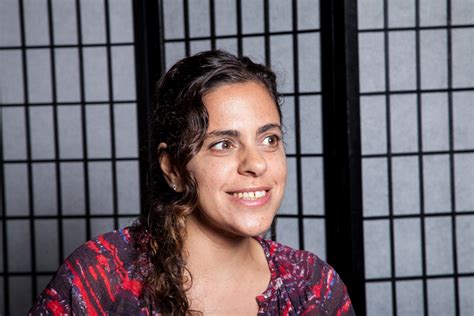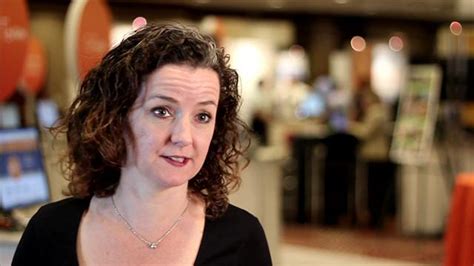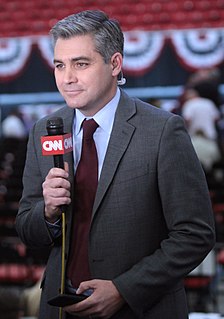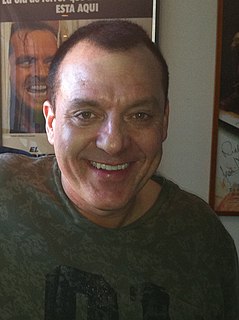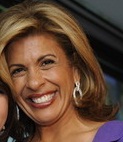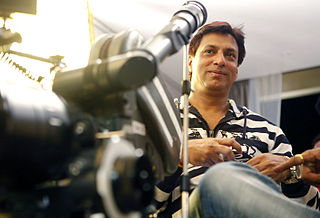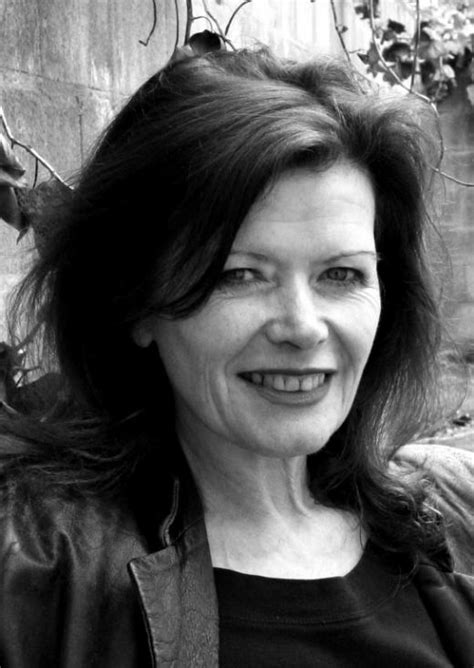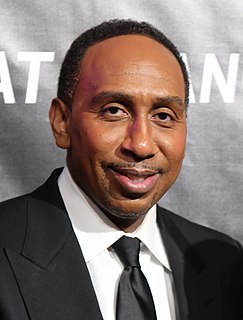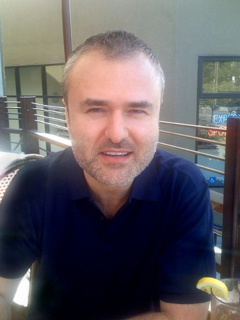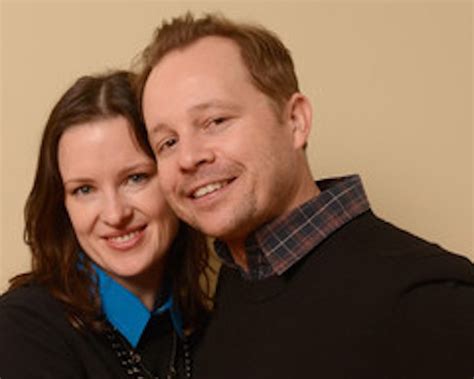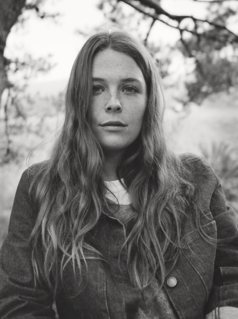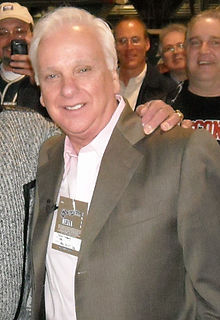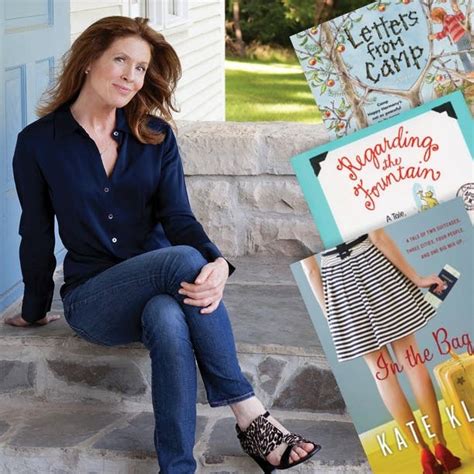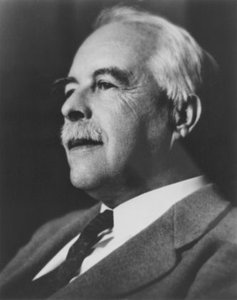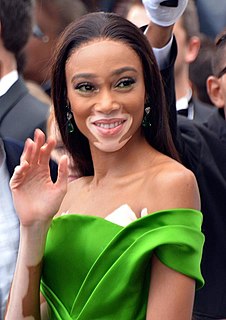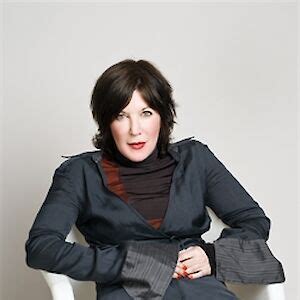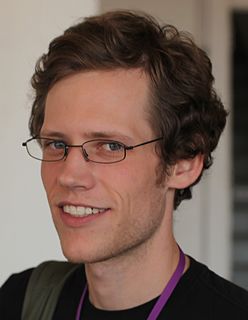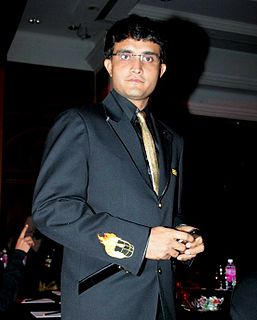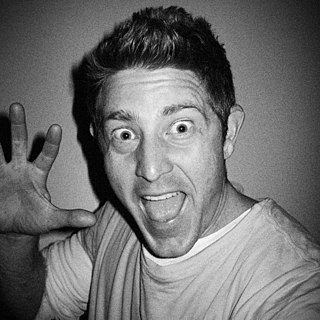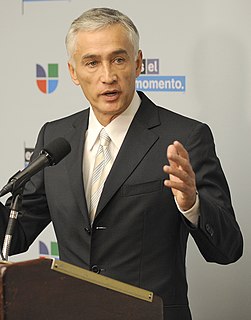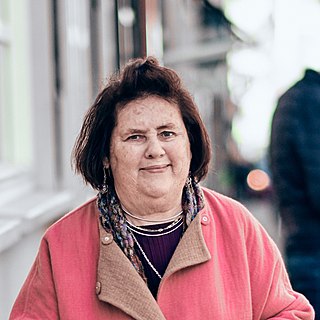Top 1129 Journalist Quotes & Sayings - Page 17
Explore popular Journalist quotes.
Last updated on December 4, 2024.
As a rule, I am very skeptical of tying books to anniversaries. I don't think readers care. I also feel that it just about guarantees that somebody else will be writing a book on the same subject, but being a former journalist, I'm always interested in, like, why write about something today? Why do it now?
A refusal of shame about sexual assault and the prioritization of speaking your mind while using your real name - instead of a pseudonym given to you by a journalist. Those ideas were soon taken up by Lena Dunham, Lady Gaga, and Kesha. And now, with Harvey Weinstein's unmasking, they've spread to the top of Hollywood.
Relationships matter above all, and that you build relationships by making yourself useful, not annoying. The PR practitioner should focus on providing helpful service to the journalist whenever possible. Help them source good story ideas, provide sources with intelligent contributions to make, thank them for their time and attention.
I have always been very open and honest about this part of my life with my friends, my family, and my colleagues. In a perfect world, I don't think it's anyone else's business, but I do think there is value in standing up and being counted. I’m not an activist, but I am a human being and I don't give that up by being a journalist.
I went to university and studied English literature, and I forgot about music. I was gonna be a journalist. But then I decided to try and be a backing singer, and my mum was like, "Go for it." If that didn't work, I was gonna go to law school. I was just being boringly sensible; trying to be a singer felt a bit indulgent.
Since the advent of the Internet - more recently compounded by blogging - everyone can be a published voice. Any cowardly, anonymous anger-monger can have an audience of thousands. That doesn't make them a journalist any more than my throwing an onion and a few carrots into a pot of boiling water makes me Julia Child.
Conception of a film starts with the music. Always. I hear the movie before I can ever write it. I would say that 80% of the time, that's the successful stuff. It's the other stuff I have to work for to get right, and sometimes it doesn't work out, but the music is always the beginning. So I'm still a music journalist.
I was a journalist. I was a drummer. I was everything. I didn't know what the heck I was. But with Jack Paar, the job was very specific - no confusion. You came in each day. You wrote five pages of jokes. You handed the pages in... The pressure was to write five pages of jokes every day. I did it, and I thought, 'This is what I like to do.'
Whatever it is, if you draw, you paint, you're a carpenter, you play football, the more you do it, you're a journalist, the more stories you write, the more people you interview and navigate your way through these different personalities to get your story, the better you're going to get at it. Acting's no different.
A good American friend of mine who has lived in India for many years, working as a journalist, was recently denied entry to the country because he wrote on Kashmir. This is a reflection of fractures within society. Pakistan, too, has to focus on the Lashkar [Lashkar-i-Taiba] and other similar groups and work towards some sort of sensible compromise on Kashmir.
I well recall my horror when I heard for the first time, of a journalist who had laid in a pair of what were then called bicycle pants and taken to golf; it was as if I had encountered a studhorse with his hair done up in frizzes, and pink bowknots peeking out of them. It seemed, in some vague way, ignominious, and even a bit indelicate.
I think credibility is one of those things that, if you work hard and you get it by standing in the trenches and traveling the world, people realize you're multi-faceted. Part of me is a serious journalist and I loved all of the stuff I did. And then there's another part of me that likes to let go and I think a lot of women can relate to that.
I am an emotional and fragile person. I observe life, I am perceptive and can read a person's body language. I have a strong journalistic streak in me, and had I not been a filmmaker, I would have become a film journalist. I have combined my perceptive and journalistic traits to create my own brand of cinema.
One thing the humanitarian world doesn't do well is marketing. As a journalist, I get pitched every day by companies that have new products. Meanwhile, you have issues like clean water, literacy for girls, female empowerment. People flinch at the idea of marketing these because marketing sounds like something only companies do.
I think all of us in the pursuit of more perfect version of the truth and the story need to reckon with what we bring to the story, and I think that I'm confronting that in a very real way everyday. I'm extremely proud of who I am and it's nice to see it celebrated, but if someone were to ask me to list in order the biography, you know journalist comes first.
Every interview is as much an impression of the journalist as it is the artist or subject. You look at interviews and you see a portrait of two people. The worst thing that can happen is if you're misquoted and then that quote is misquoted. That does drive one crazy. The most embarrassing thing is when your words are misrepresented or sometimes you say something stupid and you live to regret it.
When I grew up in India, telephones were a rarity. In fact, they were so rare that elected members of Parliament had the right to allocate 15 telephone lines as a favor to those they deemed worthy. If you were lucky enough to be a wealthy businessman or an influential journalist, or a doctor or something, you might have a telephone.
I think we are constantly asked day in and day out to find the things that we find frustrating or inspiring or that we're passionate about, and attack it from that angle. I don't like being lumped into the idea of being media, or liberal media for that point of view. I am not trained as a journalist.
I think people are sort of waking up to it now, how probably the biggest change in Internet media isn't the immediacy of it, or the low costs, but the measurability. Which is actually terrifying if you're a traditional journalist, and used to pushing what people ought to like, or what you think they ought to like.
In this country, intellectual cowardice is the worst enemy a writer or journalist has to face ... Unpopular ideas can be silenced, and incovenient facts kept dark, without the need for any official ban ... At any given moment there is an orthodoxy, a body of iedas which it is assumed that all right-thinking people will accept without question.
Part of success is having a good story, and as a journalist, I totally understand. But it meant that my many, many years of focus and hard work got kind of prepackaged into a Cinderella story. I'm super grateful that it happened, but it left me feeling like I never got to be a full human in the experience.
[Barack] Obama isn't pointing to anyone, and certainly doesn't like it when others note (correctly) that his influences were the likes of Saul Alinsky, the Chicagoan and modern founder of community organizing, or Frank Marshall Davis, the communist journalist and agitator from Chicago who mentored Obama in Hawaii in the latter 1970s, and who Obama warmly acknowledges in his memoirs.
Because a part of the entire [Donald] Trump experience or whatever this last six months [of 2015] has been sort of feels like we`ve been living in a dream, but this is all actually happening.I mean, it`s great to be a political journalist in this time. It`s about the rhetoric. You hear his supporters on the campaign trail say we`re glad he`s not politically correct.
There are some programs on FOX that are not only fair and balanced, they're commentary shows. They don't have to be. But they brag about how fair and balanced they are. They don't cover rallies and tea parties. They cheer lead for rallies and tea parties. And as a journalist, I am totally against that.
Your job description as a journalist is to question and scrutinize critically-neve r to repeat claims uncritically, no matter how highly placed the sources in the bureaucracy. Don't ever forget that. You're a damn good writer, but that talent is completely worthless if you forget your job description.
I don't think I anticipated supporting myself as a writer... I expected I would have to be a teacher or a journalist, that I wouldn't just write full time. It's such a part of my life, and in some ways, it's a very unromantic part of my life. It's almost, to me, like breathing. I don't think about whether I like it or not.
Being here really is just the invitation to rest as Being. There is nothing you have to do. It is not an invitation to become. You will not be scrutinized, your actions compared with those of others. Thats just unicorn food. Let your river flow as it pleases. Simply observe and recognise that all is unfolding spontaneously when that inner journalist- the ego, is exposed as a myth.
All nonfiction writers, whether they like it or not, are translators. The translator is the perfect journalist. The best journalism endeavors to convey an essential idea or story to an audience that knows very little about it, and that requires translation. To do this successfully, the writer must filter the idea through the prism of his eye, and his mind, and his writing style.
When the mortgage giant Fannie Mae recruited Daniel H. Mudd, he told a friend he wanted to work for an altruistic business. Already a decorated marine and a successful executive, he wanted to be a role model to his four children - just as his father, the television journalist Roger Mudd, had been to him.
I take it that a monograph of this sort belongs to the ephemera literature of science. The studied care which is warranted in the treatment of the more slowly moving branches of science would be out of place here. Rather with the pen of a journalist we must attempt to record a momentary phase of current thought, which may at any instant change with kaleidoscopic abruptness.
A journalist in Toronto named Shannon Boodram saw my Facebook page and told me I was 'strikingly beautiful.' She shot a YouTube video of me, and it made a hit, grabbing thousands of views. She said the camera loved me and that I should be a model. I had never thought about modeling - it just hadn't seemed possible.
Before MS moved in on me, I'd worked for seven years as a city lawyer, as the editor of a literary magazine, and before the age of 20, I'd also worked as a cadet journalist and as an assistant director in both film and TV. And then, after the lesions of MS, both on my spine and in my brain, I was the opposite of bionic.
Every journalism bromide - speaking truth to power, comforting the afflicted, afflicting the powerful - that otherwise would be hopelessly sappy to a journalist of any experience, has become a Twitter grail. The true business of journalism has become obscured because there is really no longer a journalism business.
A journalist asked this to my father. He spent a day with me and interviewing my friends/colleagues and didn't understand how I could be the one that created 4chan and, as he put it, 'couldn't understand how to fit the square peg into a round hole.' The best way I have of describing it is, 'I didn't define it, and it doesn't define me.'
The journalist in me always loved relating and socialising and connecting with people, but there came a point where I needed to make a decision to stop that being my focus and really focus on acting - an audience are only really going to believe me as a character to an extent if they don't know me as Lily that well.
When I first became captain of the Indian cricket team in 2000, many well-wishers and journalist friends gifted me the classic Mike Brearley book, 'The Art of Captaincy.' I mean no disrespect to the book or Mr, Brearley, who I admire a great deal, but books or team meetings don't make you good captains.
"Bolshoi Babylon" is the work of filmmakers Mark Franchetti and Nicholas Read. Franchetti has been a Moscow-based journalist for 18 years. He won a British Press Award for his coverage of the 2002 Moscow theater siege in which 130 hostages were killed. He's covered Russian politics and the war in Ukraine.
Interviewer: [What do you get up to] In real time?
Brian Molko: I go on Placebo sites and have a terrible time trying to convince fans it's actually me. No one ever believes it. I've spent about four hours, giving away intimate details about myself that I'd never tell a journalist, in an effort to prove that it's me.
When I wrote my first book, 'The Tennis Party', my overriding concern was that I didn't write the autobiographical first novel. I was so, so determined not to write about a 24-year-old journalist. It was going to have male characters, and middle-aged people, so I could say, 'Look, I'm not just writing about my life, I'm a real author.'
I think being Canadian helps you as a journalist in America, because you're sort of on the outside watching this big party going on, and you're sort of taking mental notes as it goes on. I think if you're in the party the whole time, you don't notice it as much. And I think Canadians are very good observers of American culture.
I went to UMass-Amherst and was like, 'I want to work in news, I want to be a journalist.' Then I got there and was like, 'what kind of crap is this?' They inflate everything. It will be like snowing outside, like just a little bit, and they are like 'Giant storm coming, batten down the hatches!' and I just didn't like that aspect of it.
I reluctantly signed up for a journalism major, thinking I needed a fall-back way to make money should my career as a novelist fail to take off. As I started to try on journalism, including doing internships and working at the campus paper, I found I actually liked it. So I started to want to be a journalist.
I'd spent thirty years visiting the Dalai Lama, and twenty years as a journalist going to difficult places, war zones and revolutions from North Korea to Haiti and Beirut to Sri Lanka, and the question came up: What does this man have to offer to this world which seems so torn up and so attached to conflict?
The Italian journalist Oriana Fallaci used to say that for her, an interview was like a war. I get the sense that we've forgotten that here in the United States. You turn on the TV, and you see very bland interviews. Journalists in the United States are very cozy with power, very close to those in power.
As a journalist, I cannot help imagining with excitement a new era with a face-off between Hedi Slimane at YSL and Raf Simons at Dior - a magnificent battle of style and wills to echo the Armani/Versace, Gucci/Prada or even Chanel/Schiaparelli face-offs of earlier years. But I remind myself that this is not a game of chess.
I was working as a journalist for an Israeli paper in Paris, and my salary at the highest was fifty dollars a month. At the end of the month I always had palpitations; I didn't know how to pay my rent. Even after the war, I was often hungry. But that's part of the romantic condition of a student. To be a student in Paris and not be hungry is wrong.

